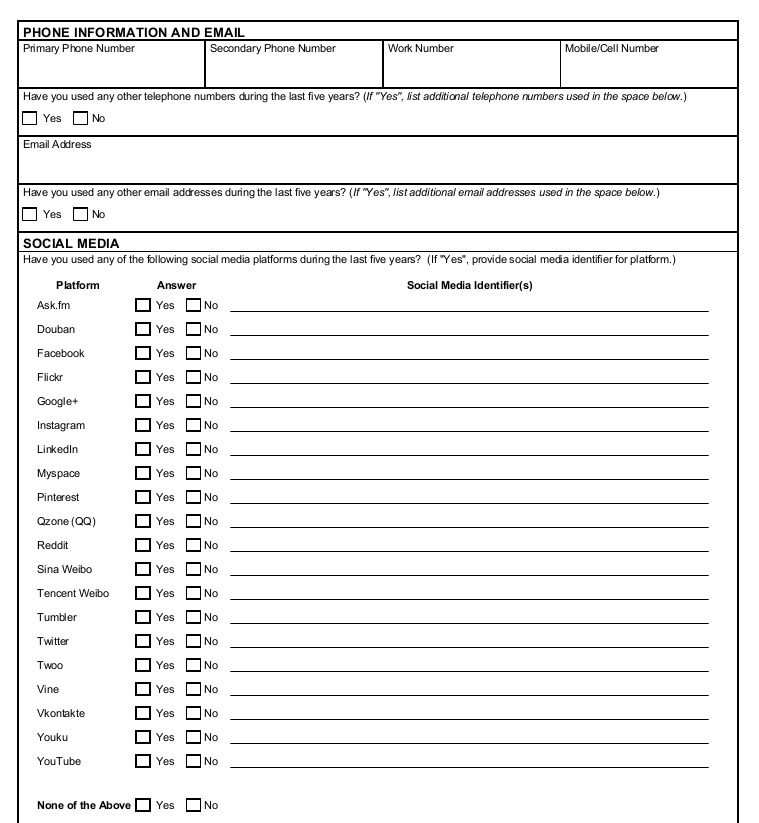Can US citizens entering the country opt out of CBP mug shots?
US Customs and Border Protection (CBP) has published a new Privacy Impact Assessment (PIA) for its Automated Passport Control (APC) kiosks and Mobile Passport Control (MPC) apps. Unlike most PIA’s, this one does not say why it was prepared, or what, if anything, about the programs it assesses has changed. But it appears to be a response — although an inadequate and possibly still a factually inaccurate one — to some of our complaints.
At many international airports and some cruise ports in the US, travelers — including US citizens — have to submit their mug shots to CBP through either an APC kiosk or the MPC smartphone app before they are allowed to proceed to CBP officers for customs, immigration, and agricultural inspections. This requirement is enforced by “line minders” manning the velvet ropes and directing pedestrian traffic inside “sterile” arrival areas. These line minders are employed by the airline, airport, and/or their contractors or sub-contractors, making it easy for CBP to deny any responsibility for their actions.
In January of this year, we were part of a meeting between civil liberties and human rights organizations and CBP officials on the subject of these “biometric entry/exit” schemes.
The CBP officials we met with in January denied that anyone is required to use the APC kiosks, contrary to our experience and that of other participants in the meeting.
When we complained that CBP hasn’t complied with even the minimal notice requirements of the Privacy Act and the Paperwork Reduction Act (PRA) for this sort of data collection, CBP’s Privacy Officer responded, “I do not consider this program to be operating in violation of the Privacy Act, therefore, I have nothing to investigate.”
But although CBP didn’t conduct an “investigation”, it does appear to have conducted a new “assessment” and published a new set of claims about what it is doing.
What does CBP now say about its mug shots of arriving travelers? And is it true?
We call B.S.
